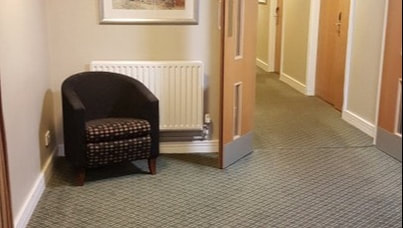|
So, however many weeks we are into lockdown… how have your plans gone?
Did you learn to play the mandolin, or bake ornate cakes, or weave your own baskets or learn Sanskrit? No? Me neither. Do you know what? You’ll get over it. Truth be told, you probably didn’t care enough about any of the things that you could have learnt in your enforced sequestration to actually do anything about them. It was an opportunity, but, in the long run, the new skills you could have acquired just wouldn’t have made sufficient a difference to your life for the effort that learning them would have entailed. However, there is one more chance that this situation has given you and it’s one that I guarantee you will care about and that you might come to regret bitterly if you don’t act on it. It’s the chance to rip up all the things you hated about work and replace them with something that is better. Something that isn’t rooted in outdated thoughts, mechanisms, org structures and practices. Dramatic? Yes? Worth considering? Certainly. Too scary for most people to embrace? Probably. Don’t under-estimate this thought. You will probably never get a chance like this again. It is a genuine, once-in-a-lifetime opportunity and as people start to make tentative plans to return to more conventional working routines there is a small window where you can either return to a version of what existed before, or take stock and decide what was of value and what aspects can be adapted, modified or completely dumped to make how your business operates better for everyone. Let’s face it, you will spend more time at work than you would ever have spent playing the mandolin anyway. At Colour; Noun, one of our lockdown offers has been giving people the chance to assess the change that the pandemic has brought to their lives through the lens of other changes that they have experienced, using the monomyth theory outlined by Joseph Campbell that underpins all stories across times and cultures. We like it a lot, and will gladly take you through it, but the central premise is this: Failure is the destiny of those who cling onto the past and who do not learn to adapt. Don’t forget, this has been a world-wide phenomenon. This isn’t the challenge of a merger, or a rival launching a new product, or a new technological development to which you have to respond. For the first time in 75 years the smooth running of commerce, travel, trade, meetings and interactions has hit the pause button. If there was ever a time to experiment it is now. The references to “war” that have accompanied the ravages of this virus are as hackneyed and trite as they are prevalent, but in this instance, there is a parallel that is worth drawing. Consider the changes that came about after the First World War (votes for women, the demise of the servant class, the establishment of new nations, the Labour movement) and the Second World War (the collapse of the British Empire, the technological and manufacturing rise of Japan and Germany, the establishment of the Welfare State in Britain and the “never-had-it-so-good” growth of consumer capitalism as war production shifted to making washing machines, cars, refrigerators and vacuum cleaners in the UK and the US). I’ll say it again. This is a once-in-a-lifetime opportunity to re-evaluate what you do and how you do it. Don’t go back to a version of what you had before. Think big. Dream bigger. Don’t limit your horizons and fall victim to the limiting beliefs that are enshrined in the stock response to a suggestion to change that is “yes… but…” Things have been not-quite-right in business for as long as I can remember. We’ve worked with dozens of companies that have tried to address that and squeak another couple of percentage points on their annual Great Place To Work Employee Satisfaction Survey. I reckon you have about six months to consider what you could do and start making the changes that will last, and that will, ultimately, bring you more joy than being able to play the mandolin.
0 Comments
What do you see but not see?
One day I noticed something that I had seen hundreds of times, but always ignored, and now I can’t unsee it. It happened in a hotel in Portugal and led to something of a strange passion… Like many of you, my work often requires me to stay in hotels, and I am sure that, like me, the experience can be a little jading. The same TV channels, the same room layout, the same belief that £15.95 is a reasonable price for a cup of coffee and a bowl of cereal at breakfast. And then it happened. That moment when something that is just accepted stands out and you wonder to yourself “Why is that a thing? Who thought that is a good idea, and what strange choices made by the people responsible brought it about?” What had I seen? Some furniture. In the corridor. Not just any furniture. We are talking about a baroque table, with two elegant chairs either side of it, placed half-way down a long corridor, and it started me thinking. Has anyone, ever, in the history of the world, been so overcome by the sudden need to write a letter, draw a picture of a zebra or fill out a tax form that they have stopped on their way to or from their room and looked around for a convenient location to satisfy that urge? Do the people who design hotel layouts live in constant fear of customer feedback forms that bemoan the lack of occasional tables? Once I opened my eyes to this bizarre need to place furniture that no one in their right mind would ever use in places where it had no right to be, a passion was born. It seemed that every hotel I stayed in conformed to this requirement. It didn’t matter if I was in Scunthorpe or Bratislava; I could take comfort in the universal desire of hoteliers to express their individuality and commitment to customer comfort by placing chairs, tables and sofas in infinite, beautifully useless variations, so that the weary traveller or jet-lagged business person could have a bit of a sit-down whenever they felt like it. Even if they would never feel like it. I tweet some of the finer examples of the art via my personal Twitter account, naturally called @ChairByTheLift – if you want to send me any pictures I will be delighted to receive them – but the phenomenon reflects a couple of the offers that we make at Colour; Noun, and, I hope, gives an insight into the kind of people we are. First of all, what traditions and tropes and norms and rhythms have you stopped seeing in your business? How many of the things you do are there as “set dressing” and represent an idea that might have been a good one once, but that now is as useless as a chaise longue in a corridor? Secondly, and perhaps more importantly, what are the oddities that you need to celebrate and how can you do this? Perhaps you need people who see the world differently to help you take a look at yours with fresh eyes. Have a sit-down on a piece of random hotel corridor furniture, think about it. and give us a call. |
AuthorColour; Noun (Vicky Holding and Howard Karloff) Archives
November 2022
Categories |



